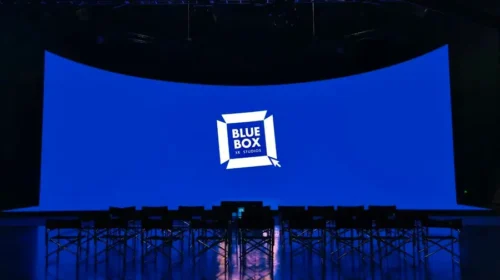Ispire finds success straddling U.S.-China divide. But are its cannabis dreams just hot air?

The U.S.-based vaping company with China roots says its revenue could balloon over the next five years on the fast-growing cannabis market
Key Takeaways:
- Recently listed Ispire co-CEO Michael Wang estimates his company’s revenue could grow to $2 billion in five years, from an expected $200 million in its current fiscal year
- Much of the vaping company’s growth could come from cannabis hardware sales, which rose 149% in the company’s latest quarter, making up nearly half its revenue
By Edith Terry
When the recently listed Ispire Technology Inc. (ISPR.US) announced its latest quarterly results on Feb. 20, investors were underwhelmed by its story of the vaping market’s big potential. The stock fell by nearly 10% over the next few days despite a 31% revenue increase to $41.7 million for the three months through Dec. 31, the company’s second fiscal quarter.
But unlike many struggling vaping stocks, Ispire’s shares have moved steadily upward since its Nasdaq listing last April, currently trading about 40% above its $7 IPO price. With a strong trailing price-to-sales (P/S) ratio of 3.85, it is even comparable to the much larger Altria Group (MO.US) at 3.54, and is ahead of Shenzhen-based Smoore International (6969.HK) as well.
Some clues about the high valuation emerged several days later, when Ispire co-CEO Michael Wang boasted of the potential for explosive growth for his company in remarks with investment personality Shadd Dales. Specifically, he said, Ispire’s revenue could grow as much as five-fold to $1 billion in three years, and could exceed $2 billion two years after that.
“Our legacy (tobacco) product will continue to grow at a healthy pace, but the real growth will come from the cannabis sector,” Wang said.
In its formal guidance for its 2024 fiscal year through this June, Ispire forecast its cannabis vaping products would generate revenue of $80 million to $90 million, up 100% to 125% from the previous year. It forecast annual revenue from its tobacco vaping products of $95 million to $105 million, representing 33% to 47% growth.
In a vaping landscape where most companies have struggled under growing regulation, why are investors relatively upbeat on Ispire? And what could go wrong? And why weren’t investors more enthusiastic about the company’s latest earnings?
The answer to the first question is easy. Ispire is quickly becoming a play on the ever-expanding U.S. market for legal marijuana. It only sells its cannabis hardware in the U.S., which is legal at the state but not yet the federal level. Annual U.S. vape sales now total about $6.8 billion, according to Tobacco Reporter, with another $700 million in sales of vape parts. But Euromonitor estimates the market for cannabis vaping products worldwide will be even bigger at $10.5 billion by 2025, most of it in the U.S. and Canada.
While that market is big, especially the cannabis side, Ispire is currently just a smaller player. Its cannabis vaping revenue in the three months to December grew by 149% to $19.5 million, out of total revenue of $41.7 million for the quarter. Its revenue for the six months to December rose 43.7% year-on-year to $84.5 million. But its revenue from cannabis hardware grew by a much faster 133% for the six-month period to $36.9 million. Revenue from its tobacco vaping products, which it sells in 30 countries in Asia and Europe, but not the U.S. or China, increased just 11% to $47.6 million during the six-month period.
China roots
The company that eventually produced Ispire was founded in the South China boomtown of Shenzhen in 2011 as a maker of tobacco vaping hardware. Ispire was set up later and is based in Los Angeles, though its manufacturing and one of its top executives remain at the original Shenzhen-based company, Shenzhen Yi Jia Technology Co. Ispire introduced its cannabis products in 2020, and those products already accounted for 22.6% of its revenue by its fiscal 2022 year.
So, what’s not to like about this company? For starters, it’s losing money, including a $4 million loss in the six months through December. Ispire’s accounts receivables nearly doubled to $22.7 million by the end of December compared with six months earlier, suggesting many of its customers may not be paying their bills on time. And it is also rapidly burning cash, with its net cash falling 80% to $17.5 million at the end of December from $84.3 million a year earlier.
Wang said his team was “working diligently” to address the accounts receivable issue, and noted that the February maturation of a certificate of deposit had boosted the company’s cash to $27 million. “Obviously, the cash burn has been to fund the growth of the company,” he said.
There are other potential problems, including an earlier clash between U.S. and Chinese securities regulators over the former’s access to accounting records for U.S.-listed Chinse companies. Ispire’s positioning as a U.S.-based company with a major China operation puts it in a bit of a gray area, though at this point the U.S. and Chinese regulators have resolved most of their differences through an information-sharing agreement signed in 2022.
Ispire’s China connection delayed its initial listing plans, not because of geopolitics, but because of a Chinese domestic regulatory crackdown on the vaping industry in 2021. And in the current election year in the U.S., there’s always the chance that Ispire’s China connection could become an issue again.
Ispire has tried to play down that China connection by building a new factory in Malaysia and considering one in California. But as of now, it currently buys 95% of its vapers from Yi Jia Technology, which is owned by Ispire chairman and co-founder, Liu Tuanfang, who is based in China and is also chairman of Shenzhen Yi Jia.
Ispire started out as Aspire, the brand name of Ispire’s tobacco-based vaping hardware. The technology was invented by Liu, who owns 61% of Ispire together with his wife Zhu Jiangyan.
The original Aspire Global was based in Shenzhen, and filed an application for a $135 million Nasdaq listing in 2021. But it withdrew the application in May 2022, just after China’s tobacco regulator rolled out new rules requiring its approval for domestic e-cigarette makers seeking foreign listings. The establishment of Ispire as a separate, U.S.-based company may have been designed to circumvent that requirement.
All this shows that Ispire is quite a complicated company, with less risk for foreign investors than traditional Chinese companies, but still some China risk nonetheless. That might explain why the company’s shares have performed relatively well since its IPO, even as most U.S.-listed Chinese shares have struggled. It could also explain the tepid reaction to the latest results, as investors pocket some of the stock’s post-IPO gains.
To subscribe to Bamboo Works free weekly newsletter, click here






